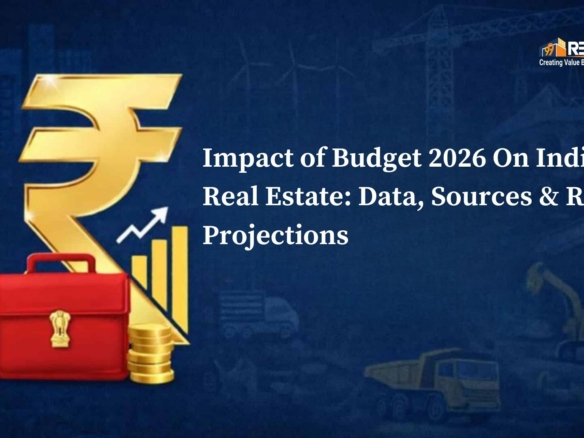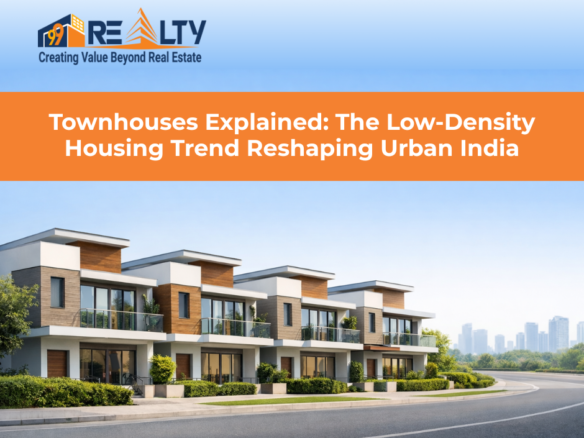Deciding between buying and renting a home is a pivotal financial and lifestyle choice. In India, this decision is influenced by factors such as economic conditions, personal circumstances, and long-term objectives. This guide provides an in-depth analysis to assist you in making an informed decision that aligns with your goals.
Understanding the Basics
Buying a Home
Purchasing a home involves acquiring ownership, building equity, and committing to a long-term financial obligation. Homeowners have the freedom to customize their living space and benefit from potential property appreciation.
Comprehensive Guide to Long-Term Capital Gains Tax on Property for High-Net-Worth Individuals in India
Renting a Home
Renting entails leasing a property for a specified period without ownership rights. It offers flexibility, lower initial costs, and relief from maintenance responsibilities.
Pros and Cons
Buying a Home
Pros:
- Equity Building: Monthly mortgage payments contribute to ownership, increasing net worth over time.
- Stability: Provides a permanent residence, fostering a sense of community and security.
- Customization: Freedom to modify and renovate the property to suit personal preferences.
- Tax Benefits: Eligibility for deductions on mortgage interest and property taxes.
Relief for Property Owners: Government Amends Indexation Proposal for Real Estate Taxation
Cons:
- High Upfront Costs: Includes down payment, registration fees, and other associated expenses.
- Maintenance Responsibilities: Homeowners bear the cost and effort of property upkeep.
- Market Risks: Property values may fluctuate, affecting investment returns.
Renting a Home
Pros:
- Flexibility: Easier relocation options without the burden of selling property.
- Lower Initial Costs: Typically requires only a security deposit and monthly rent.
- No Maintenance Hassles: Landlords are generally responsible for repairs and maintenance.
Cons:
- No Equity: Rent payments do not contribute to ownership or asset building.
- Rent Increases: Subject to periodic rent hikes, impacting long-term affordability.
- Limited Control: Restrictions on modifications and personalization of the living space.
Key Factors to Consider
Financial Situation
Assess your income stability, savings, and ability to handle long-term financial commitments. Buying a home requires substantial initial investment and ongoing expenses, whereas renting offers more predictable short-term costs.
Lifestyle Preferences
Consider your career trajectory, family plans, and desire for mobility. If frequent relocation is anticipated, renting may be more suitable.
The Great Indian Homeownership Debate: Is Buying Still Worth It in 2025?
Location
Property prices vary significantly across regions. In metropolitan areas, renting might be more affordable, while in developing regions, purchasing could be advantageous due to potential appreciation.
Time Horizon
If you plan to reside in a location for an extended period (typically over 5 years), buying may offer better financial benefits. Short-term stays often favor renting due to lower transaction costs.
Market Conditions
Interest rates, property values, and rental demand influence the cost-effectiveness of buying versus renting. Analyzing current market trends can guide your decision.
Financial Comparison: Buying vs. Renting
Buying Scenario
Assuming a property value of ₹50,00,000 with a 20% down payment:
| Expense | Calculation | Amount (₹) |
|---|---|---|
| Down Payment | 20% of ₹50,00,000 | 10,00,000 |
| Loan Amount | ₹50,00,000 – ₹10,00,000 | 40,00,000 |
| EMI (7% interest, 20 years) | ₹31,000/month × 12 × 5 years | 18,60,000 |
| Maintenance | ₹50,000/year × 5 years | 2,50,000 |
| Property Tax & Insurance | ₹20,000/year × 5 years | 1,00,000 |
| Total Cost Over 5 Years | 32,10,000 | |
| Principal Paid (Equity Built) | Approximate | 5,48,000 |
| Property Appreciation (5%) | Future Value: ₹63,81,000 | 13,81,000 |
Renting Scenario
Assuming an initial monthly rent of ₹20,000 with a 5% annual increase:
| Year | Monthly Rent (₹) | Annual Rent (₹) | Cumulative Rent (₹) |
|---|---|---|---|
| 1 | 20,000 | 2,40,000 | 2,40,000 |
| 2 | 21,000 | 2,52,000 | 4,92,000 |
| 3 | 22,050 | 2,64,600 | 7,56,600 |
| 4 | 23,153 | 2,77,836 | 10,34,436 |
| 5 | 24,310 | 2,91,720 | 13,26,156 |
If the ₹10,00,000 (initial down payment) is invested at an 8% annual return, the gain over 5 years would be approximately ₹4,00,000.
Final Comparison
| Aspect | Buying (₹) | Renting (₹) |
|---|---|---|
| Total Cost (5 Years) | 32,10,000 | 13,26,156 |
| Equity Built | 5,48,000 | 0 |
| Property Appreciation | 13,81,000 | 0 |
| Investment Returns | 0 | 4,00,000 |
| Net Cost | 12,81,000 | 9,26,156 |
Over a 5-year period, renting appears more cost-effective. However, buying offers asset accumulation and potential appreciation, which may yield greater benefits in the long term.
Common Myths Debunked
Myth 1: Renting is Wasted oney
Reality: Renting offers flexibility and can be financially prudent, especially if property prices are high or if you plan to relocate soon.
Myth 2: Buying is Always a Good Investment
Reality: Property values can fluctuate, and owning a home comes with ongoing costs that may not always yield profitable returns.
Myth 3: You Must Buy a Home by a Certain Age
Reality: Homeownership should align with individual financial readiness and life goals, not societal expectations.
The decision to buy or rent a home in India hinges on a multitude of factors, including financial capacity, lifestyle choices, and market dynamics. A thorough evaluation of these elements will guide you toward a choice that aligns with your personal and financial aspirations.
Note: This article is for informational purposes only and does not constitute financial advice. Please consult with a financial advisor for personalized guidance.
Subscribe to get updates on our latest posts and market trends.






Join The Discussion